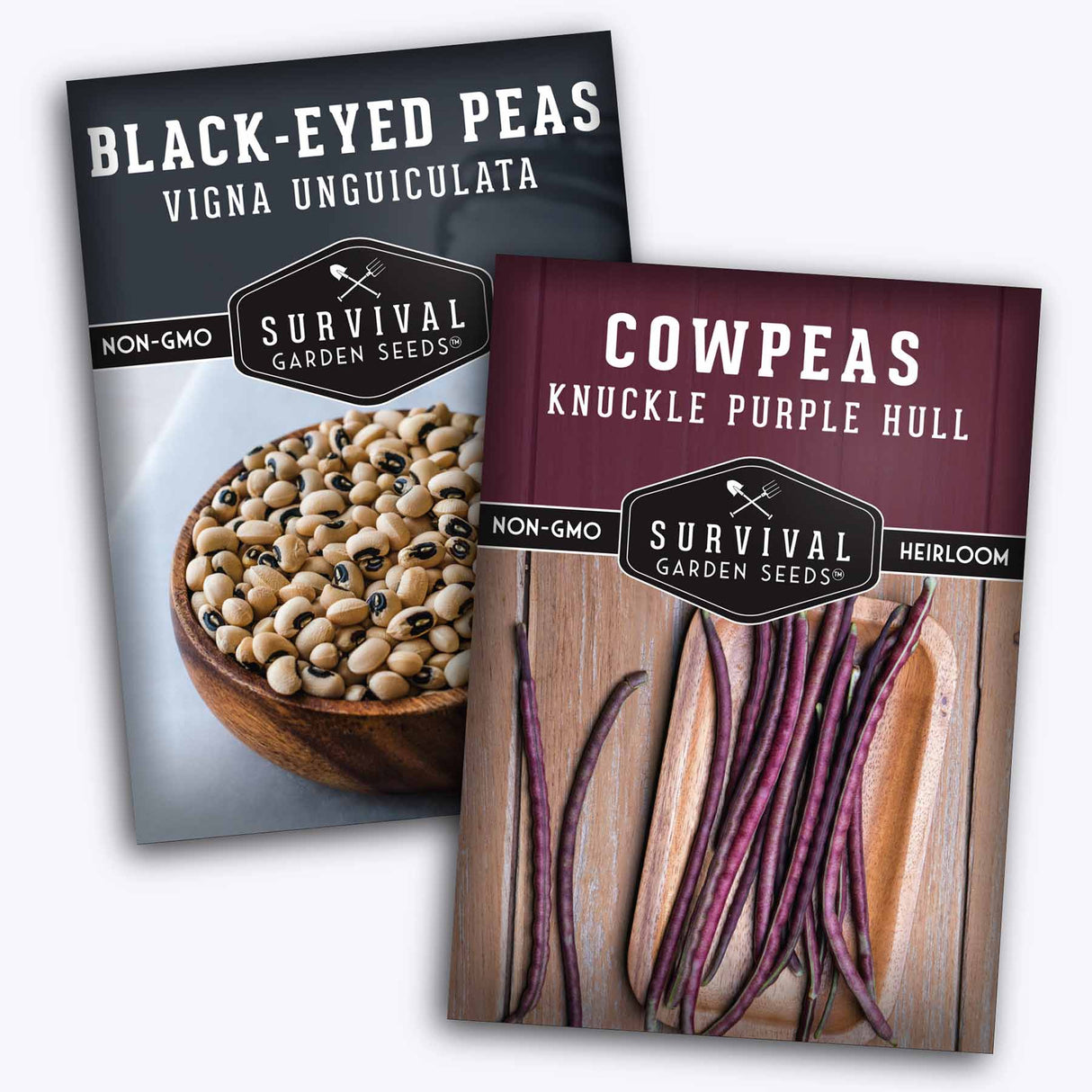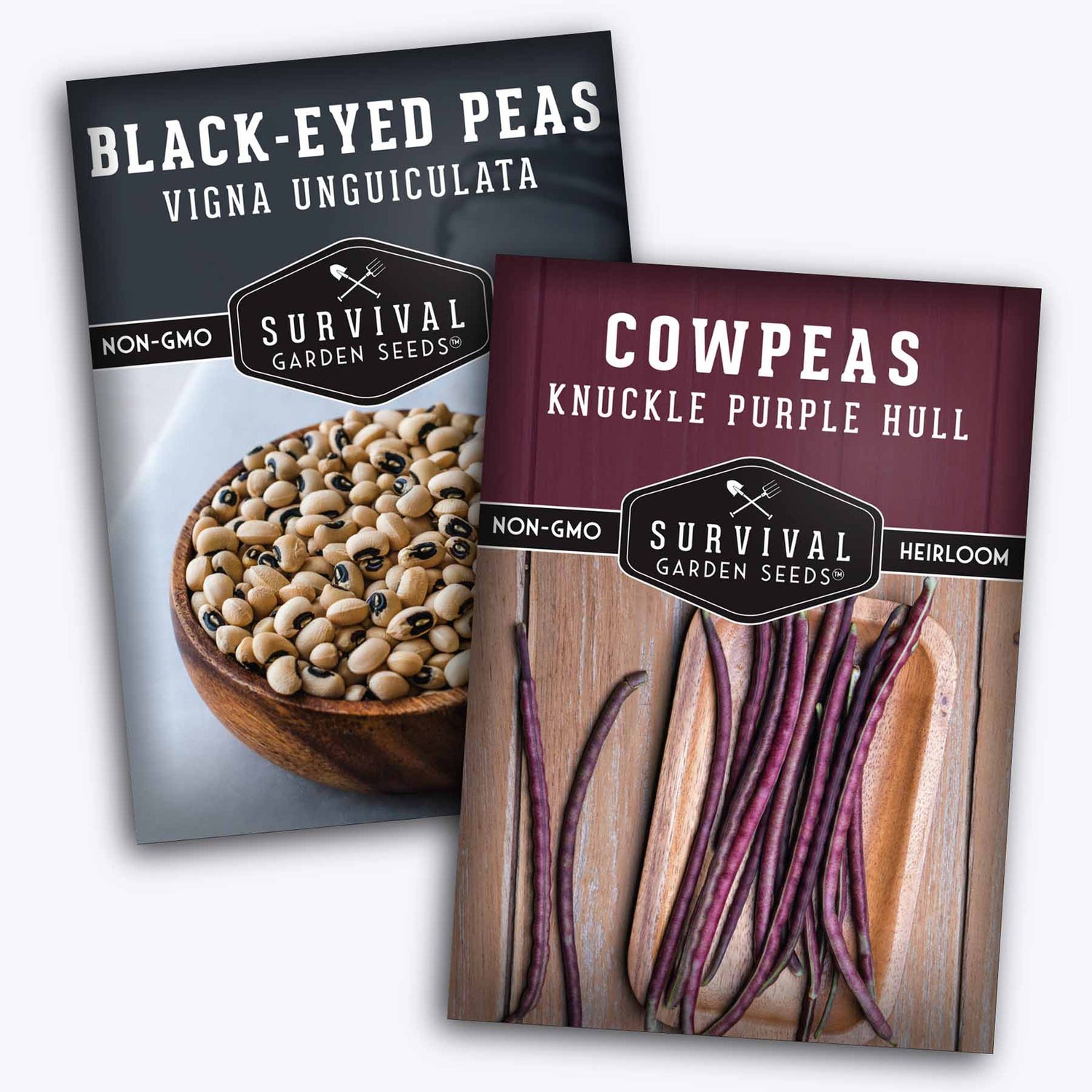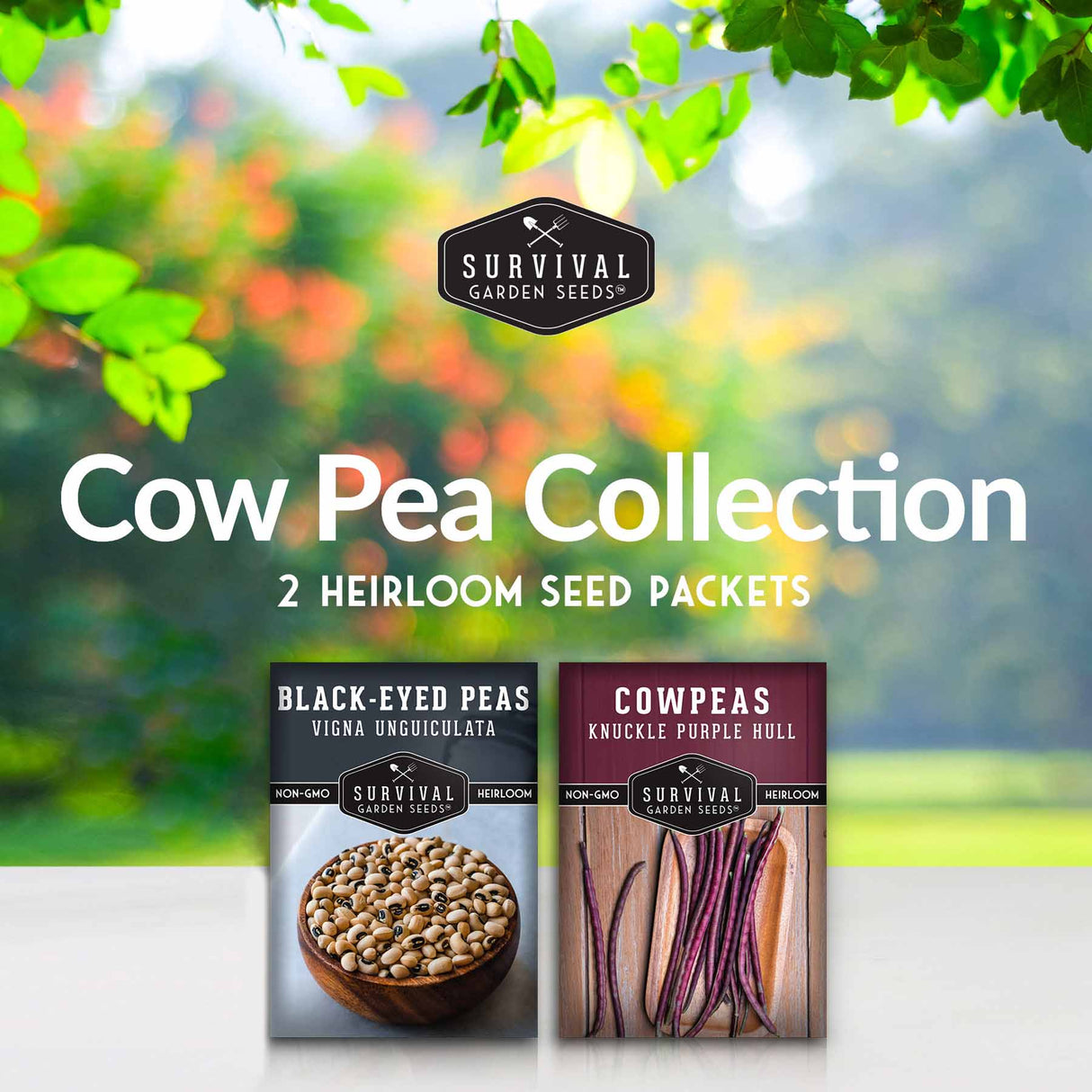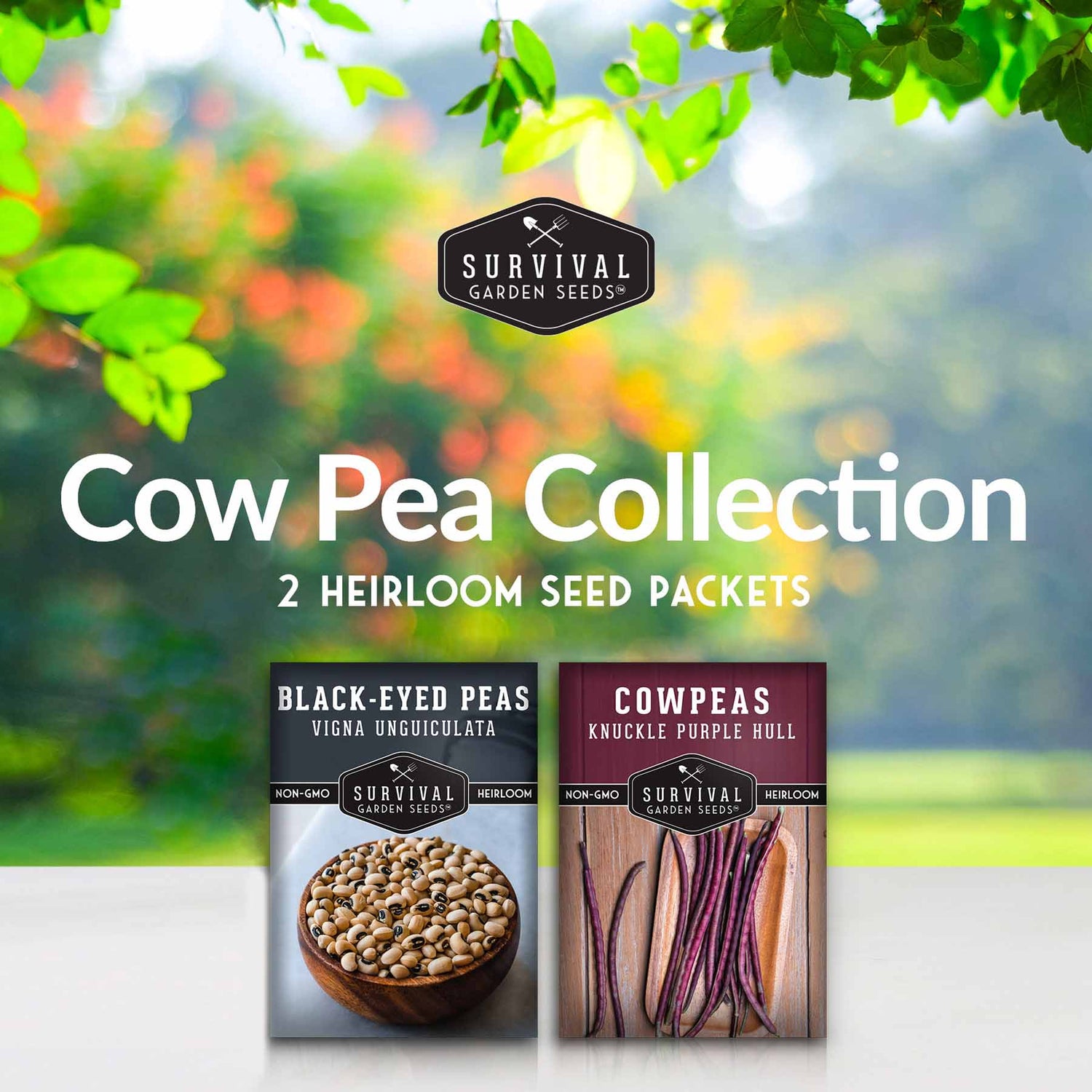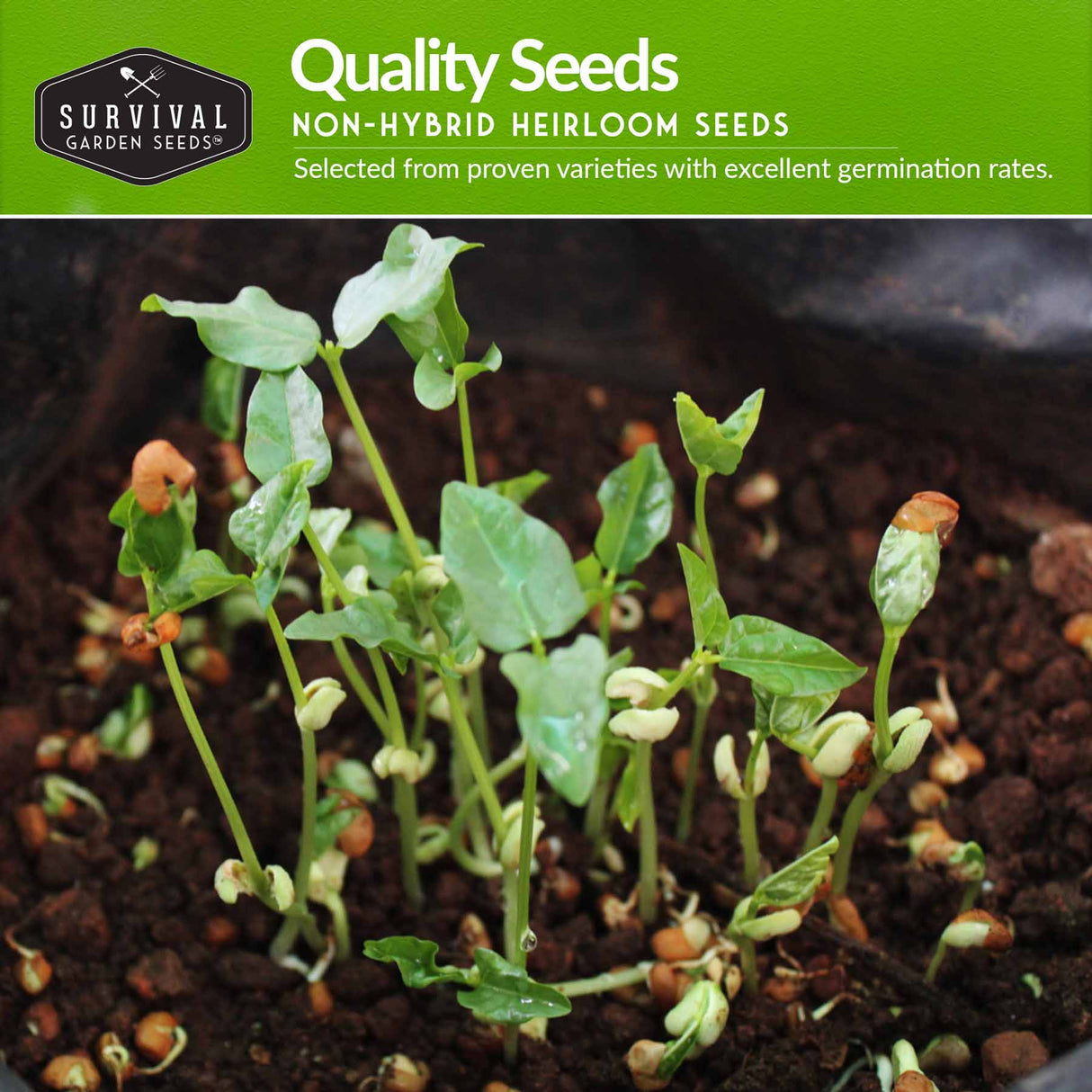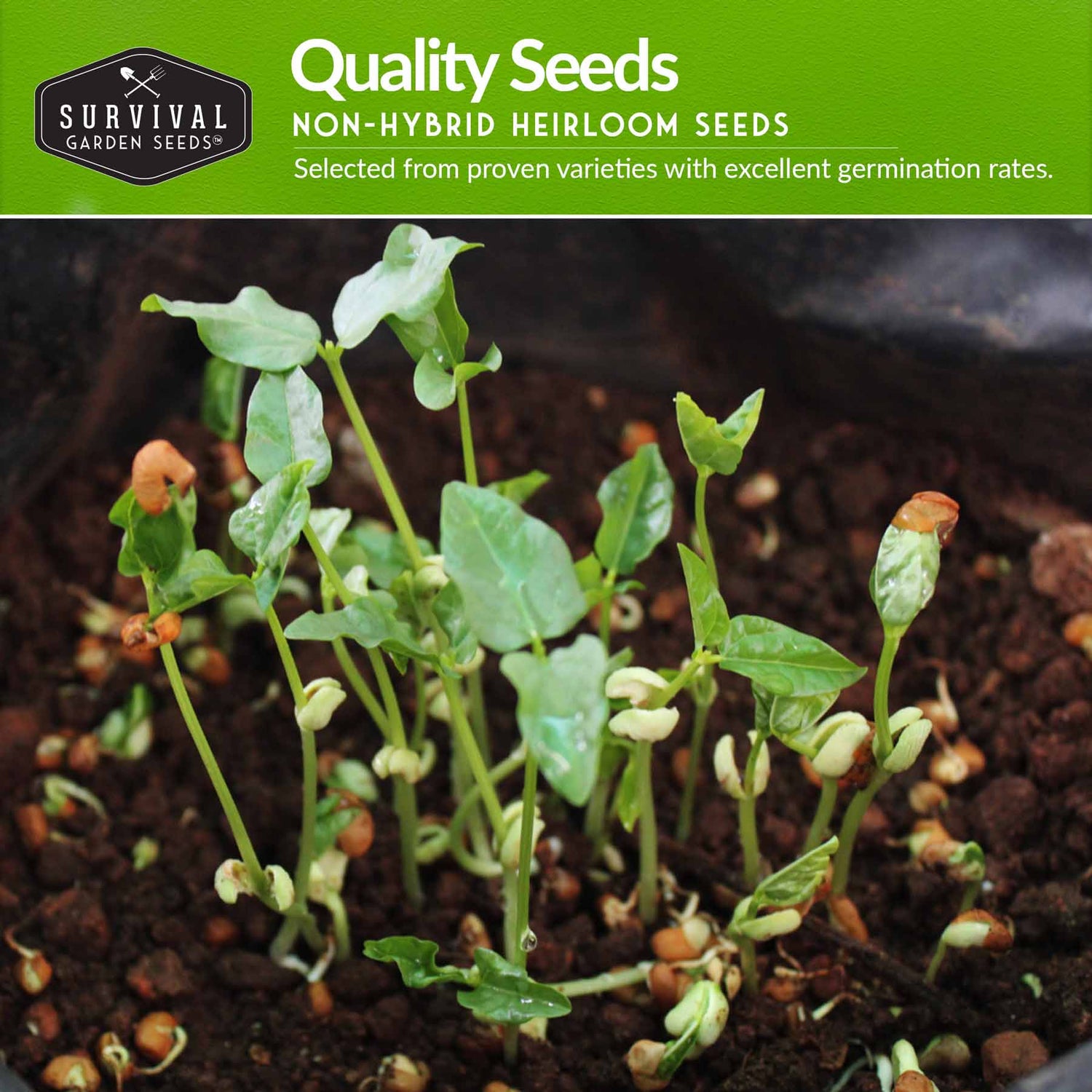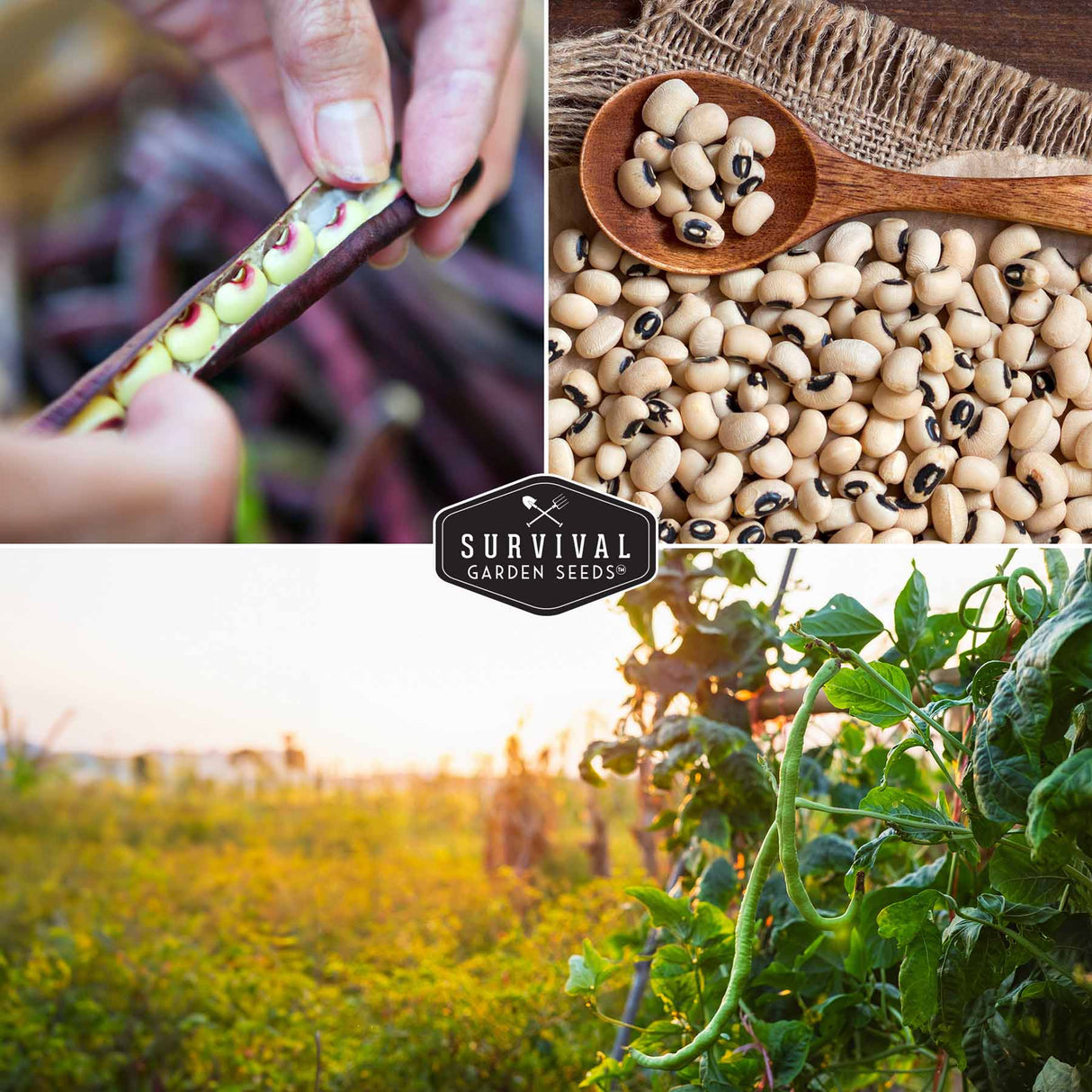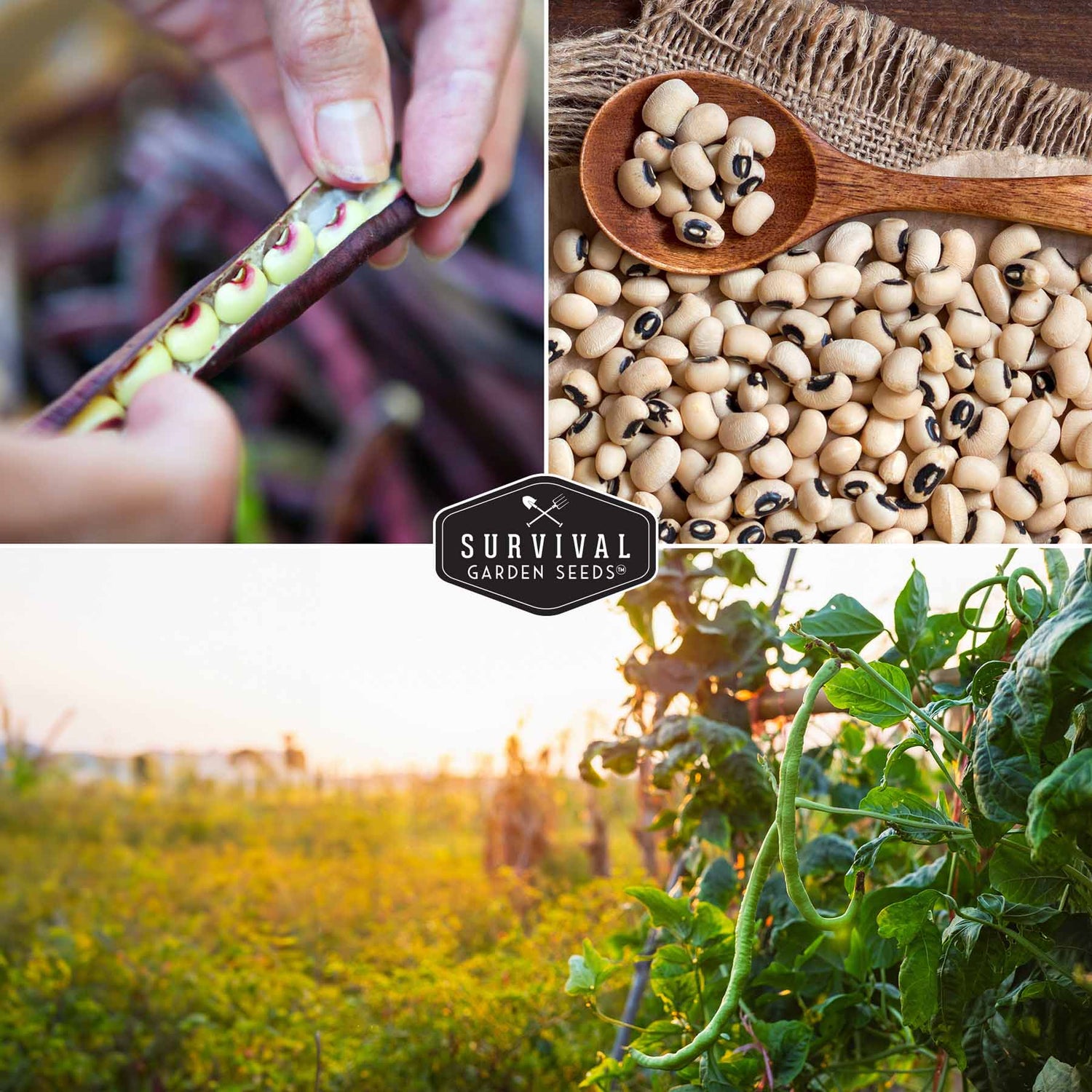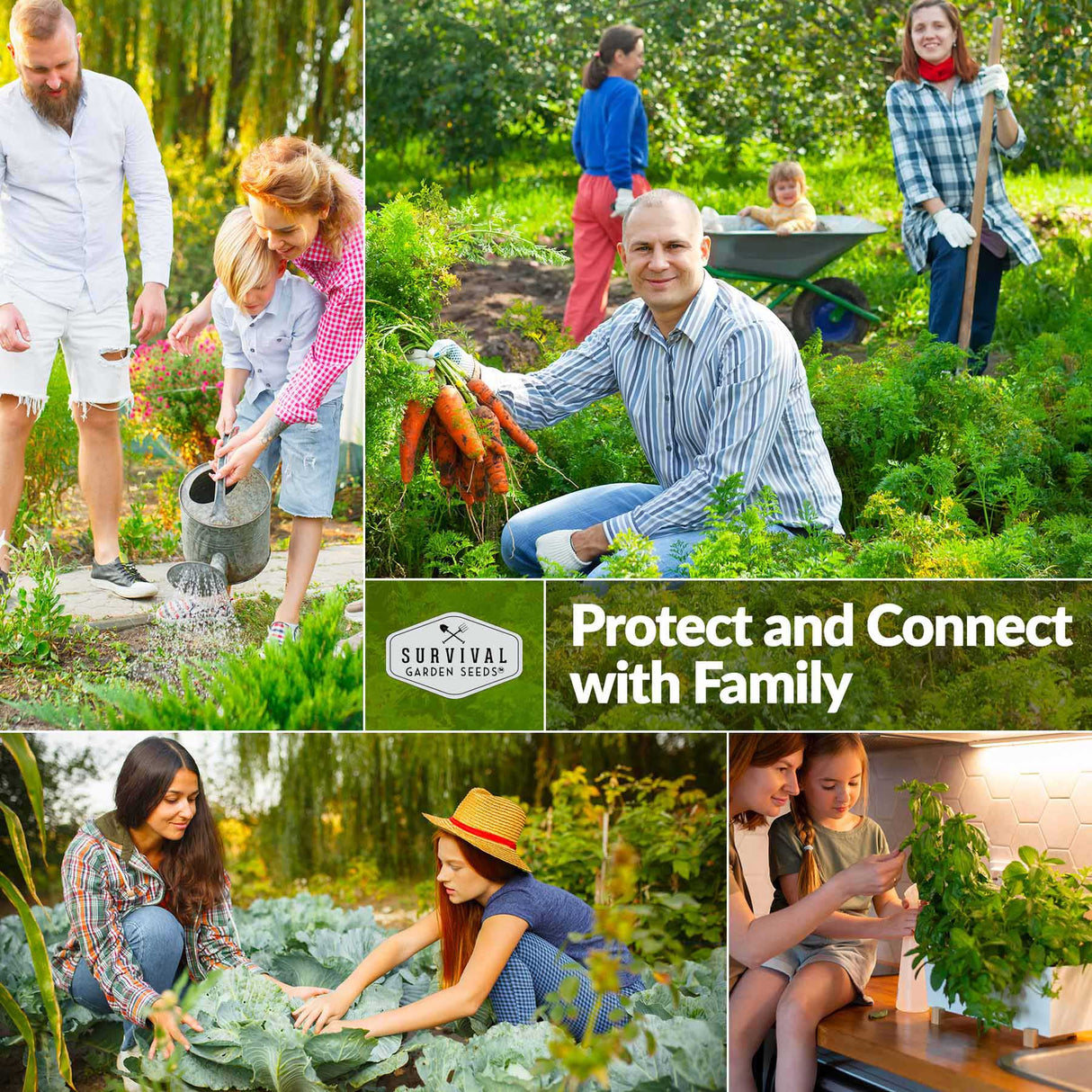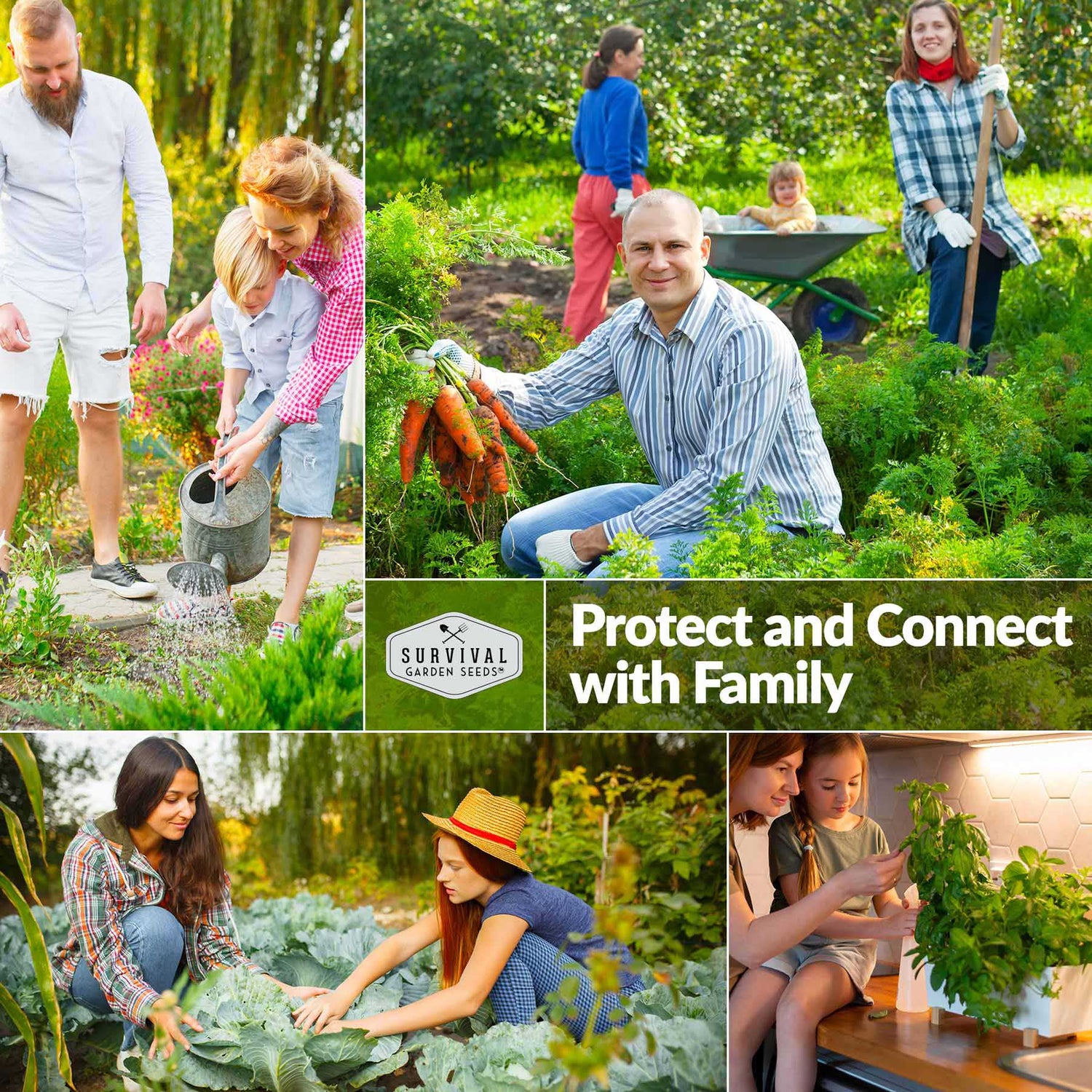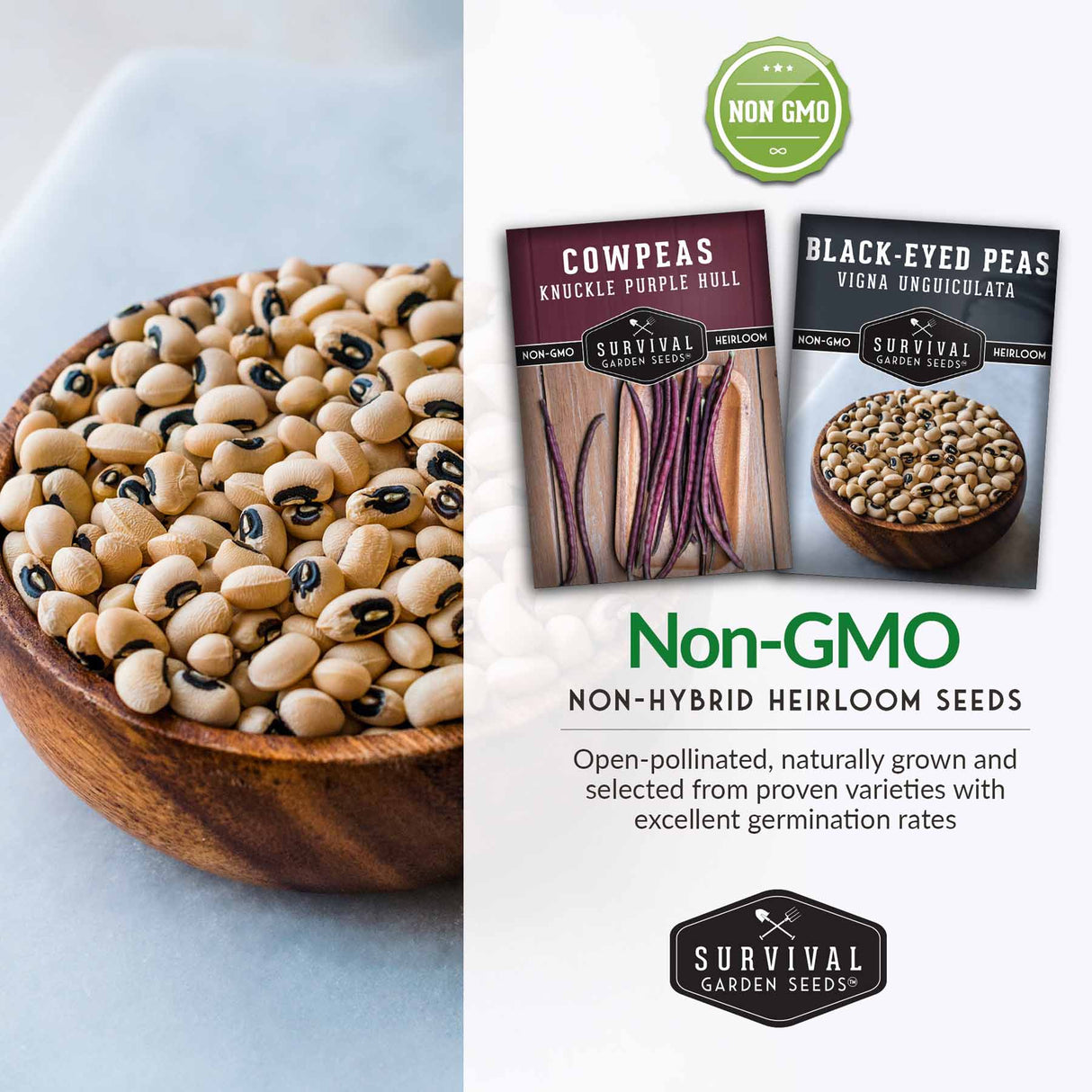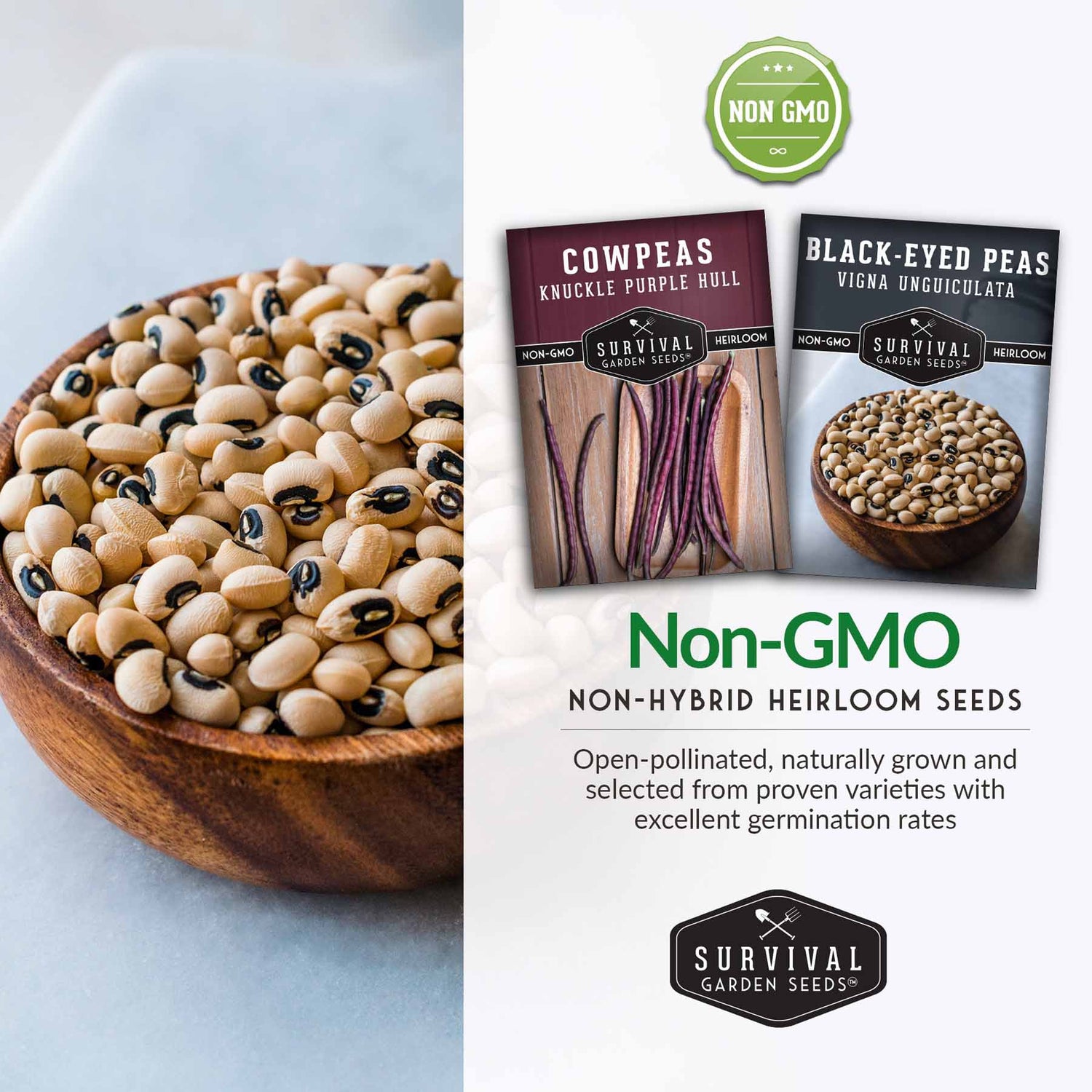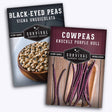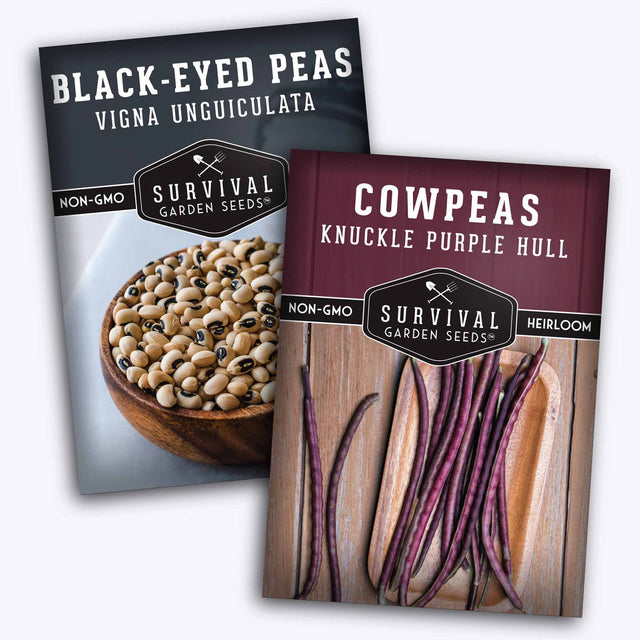Cowpea Seed Collection – Black-Eyed Peas & Knuckle Purple Hull Cowpeas for Warm-Season, High-Nutrition Gardens
Heirloom - Non-GMO - Reliable Germination
Cowpea Seed Collection – Black-Eyed Peas & Knuckle Purple Hull Cowpeas for Warm-Season, High-Nutrition Gardens is backordered and will ship as soon as it is back in stock.
Couldn't load pickup availability
Build a resilient, nutrient-rich garden with the Cowpea Seed Collection from Survival Garden Seeds. This two-variety assortment features Black-Eyed Peas and Knuckle Purple Hull Cowpeas—both warm-season legumes known for their high protein content, drought tolerance, and excellent performance in full-sun vegetable gardens. These reliable annuals thrive in poor or depleted soils thanks to their natural ability to fix nitrogen, making them valuable additions to any survival, homestead, or long-term food storage garden.
Each variety can be enjoyed fresh, canned, frozen, or dried for pantry storage. With generous yields and dependable warm-weather growth, this collection offers both immediate harvest value and long-term nutrition.
Varieties Included in the Cowpea Seed Collection:
- Black-Eyed Peas: A classic cowpea that performs exceptionally well in hot climates and low-fertility soils. Valued for its mild, earthy flavor and versatility in Southern cooking. Suitable for fresh eating or preserving through drying, canning, or freezing.
- Knuckle Purple Hull Cowpeas: A productive bush-type cowpea with large purple pods and plump peas displaying a distinctive purple “eye.” Known for heavy yields and tender, flavorful peas that hold their quality when preserved by drying, freezing, or canning.
Why Customers Love the Cowpea Seed Collection:
- Two high-nutrition, warm-season legumes ideal for survival gardening
- Nitrogen-fixing plants that help improve soil health
- Excellent for fresh eating or long-term food storage
- Hardy, drought-tolerant crops suited to hot climates
- Each packet includes clear planting and seed-saving instructions
How to Grow:
Sow seeds directly outdoors after soil has warmed fully. Choose a location with full sun and well-drained soil. Cowpeas thrive in heat and tolerate dry conditions once established. Water consistently during germination and early growth. Harvest fresh pods as desired or allow peas to fully mature and dry on the plant for storage. Bush-type varieties need little support and are well suited to raised beds, garden rows, or larger containers.
Heirloom Garden Seeds
All of our seeds are open-pollinated, non-GMO, heirloom varieties with tested germination rates
Payment & Security
Payment methods
Your payment information is processed securely. We do not store credit card details nor have access to your credit card information.
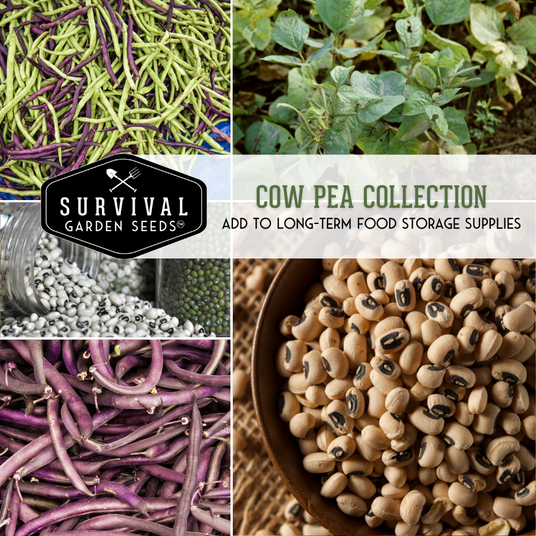
Healthy & Helpful Cowpeas
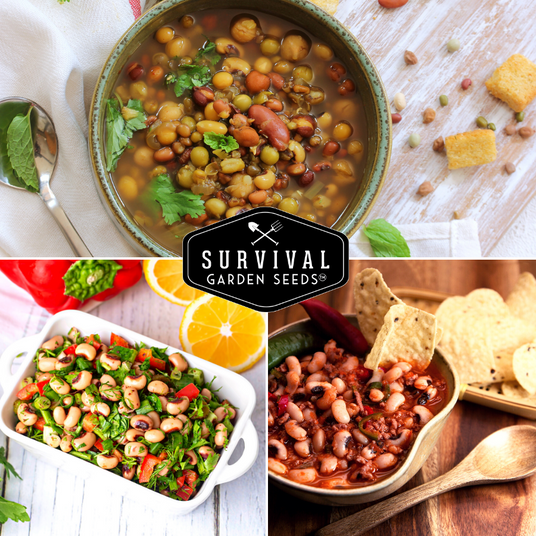
Environmentally Tolerant
Why Choose Survival Garden Seeds
At Survival Garden Seeds, we believe in preparing today for tomorrow’s peace of mind. That’s why we offer only heirloom, non-GMO, and untreated seeds you can trust to nourish your family and support a sustainable lifestyle. As a family-owned American company, we’re committed to providing seeds that grow strong and true—helping you cultivate health, resilience, and beauty in your garden.
Frequently Asked Questions
Are your seeds heirloom and open-pollinated?
Are your seeds heirloom and open-pollinated?
Yes. All of our seeds are heirloom, open-pollinated varieties, which means they can produce seeds that grow true to type and are suitable for seed saving.
You can learn more about open-pollinated, heirloom, and non-GMO seeds in our Survival Garden Training blog.
Are your seeds non-GMO?
Are your seeds non-GMO?
Yes. All Survival Garden Seeds are 100% non-GMO. Our seeds are open-pollinated heirloom varieties and are never genetically modified.
Are your seeds treated with chemicals?
Are your seeds treated with chemicals?
No. Our seeds are completely untreated and free from chemical coatings, fungicides, or synthetic treatments.
How do I know my seeds are fresh?
How do I know my seeds are fresh?
Every seed packet includes a packed-for date, and we germination-test each seed lot before packaging to ensure high viability.
What is the shelf life of your seeds?
What is the shelf life of your seeds?
Most seeds remain viable for 3 to 5 years or longer when stored properly in a cool, dry place away from light and moisture.
In what USDA hardiness zones can I grow your seeds?
In what USDA hardiness zones can I grow your seeds?
Our varieties are selected to grow successfully across USDA Hardiness Zones 3 through 10. Each packet includes variety-specific planting guidance and germination tips.

